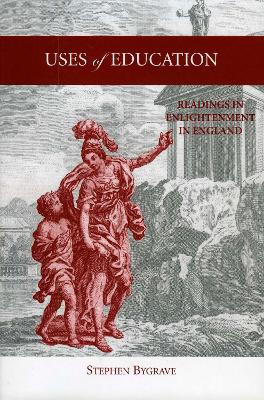Bucknell Studies in Eighteenth Century Literature and Culture
1 total work
This ambitious book takes education as a paradigm for eighteenth-century thinking, especially "Enlightenment." That egalitarian project required limits on those who could profit. Hundreds of English educational treatises between 1762 and 1800 demonstrate that education emerged as the concern of a modern public then. The book engages on philosophical and historical fronts in an informed, competent, and readable manner. Although not a history of education in the eighteenth century, it reads symptomatic texts from successive periods: from Adam Smith's response to Mandeville, through the legacies of Chesterfield and Sheridan, to the 1790s. This is coupled with addresses to three crucial topics: the problem of the poor, upper-class education, and 'politeness'; the resort to ancient Sparta; and how and why women should be educated in the nation. These topics raise the questions What is education for? What kind of education is desirable? How much education is enough? Whom does education exclude?
